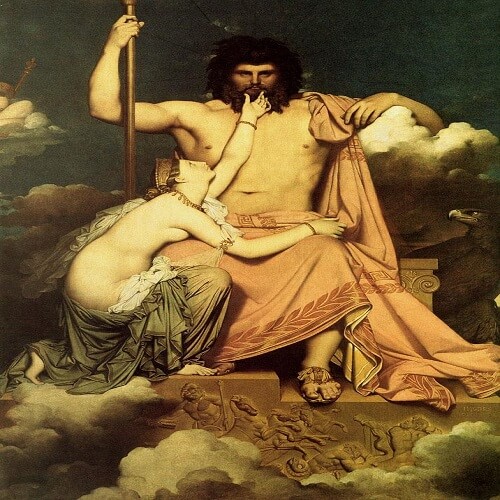Xenophanes-Greek Philosopher and Poet-Urdu
زینوفانیز ایک یونانی فلسفی اور شاعر جس نے لاتعداد خداؤں کی تردید کی

Xenophanes was from a small town of Colophon in Ionia. The most recent scholars place the date of his birth sometime around 570-560 B.C.E. He appeared to live into his nineties. Thereby placing his death sometime after 478 B.C.E. This is indicated by the following lines from one of Xenophanes’ remaining fragments, which shows him to still be writing poetry at ninety-two years of age:
- Already there are seven and sixty years
- tossing about my counsel throughout the land of Greece,
- and from my birth up till then, there were twenty and five to add to these,
- if I know how to speak truly concerning these things.
Religion and Xenophanes
Xenophanes is the first Greek figure that we know of to provide a set of theological assertions. He is perhaps best remembered for his critique of Greek popular religion. In rather bold fashion, Xenophanes takes to task the scripture of his day for rendering the gods in such a negative and erroneous light. But while Xenophanes is clearly against the portrayals of the Olympian gods performing illicit deeds, it is less clear as to why he would maintain such a thesis. There are two possible readings of this. While it seems clear that Xenophanes advocated the moral goodness of the divine, some of his other theological assertions are more difficult to discern.
Monotheism and Xenophanes
Xenophanes would have been the first Greek thinker to espouse such a revolutionary theological perspective. While the phrasing “one god greatest among gods” [emphasis mine] would seem to contradict monotheism on the face of it, scholars from both sides of the debate recognize that this is not an endorsement of polytheism by Xenophanes. Rather it should be seen as a “polar expression,” which is a poetic device used to emphasize a point and does not imply the existence of things at either pole. Nor should the fact that Xenophanes utilizes the term “gods” throughout the available fragments be seen as an endorsement of polytheism in and of itself. It is highly likely that Xenophanes is simply utilizing the common vernacular to speak of the divine. So the question remains, was Xenophanes a monotheist?
Work of Xenophanes as a Poet
Much of what we know about Xenophanes comes from his poetry. Xenophanes was a rhapsode or a guy who read epic poetry out loud. Bits and pieces of his poetry were preserved by three men: Athenaeus, Sextus Empiricus, and Simplicius. Xenophanes treated his poetry like long stories, or more accurately, long rants about what he didn’t like about Greek religion and culture. He liked to complain and tell people why they were wrong. His poetry became a platform for his philosophical and religious beliefs.
Note: This article was originally published on our related blog. We have merged content from our educational subdomains to provide easier access in one place. The original post is still available at: https://videos.urdutubes.com/2019/04/xenophanes-greek-philosopher-and-poet-urdu.html
All content is owned and authored by us, and redistribution or reuse is not allowed without permission.
Note: This post is part of our content merger from multiple educational subdomains. To access the original content, visit: books.urdutubes.com for book-related content, PDFs, and downloads, or videos.urdutubes.com for video-related posts. All content is owned and authored by us, and redistribution or reuse is not allowed without permission.




![Khawateen Digest February 2025 [Download PDF] Khawateen Digest – February 2025 Edition: A Must-Read for Every Woman! The February 2025 issue of Khawateen Digest is packed with engaging stories, insightful articles, and practical tips that cater to the modern woman. From inspiring tales to expert beauty and health advice, this edition has it all. Whether you're in the mood for a gripping story or seeking helpful tips for daily life, this digest will keep you hooked. Don't miss out on the latest edition – download the Khawateen Digest February 2025 now and enjoy a well-rounded read that speaks to every woman's interests.](https://www.urdutubes.com/wp-content/uploads/2025/04/Khawateen-Digest-February-2025-Download-PDF-218x150.jpg)
![Khawateen Digest January 2025 [Download PDF] Khawateen Digest January 2025 [Download PDF]](https://www.urdutubes.com/wp-content/uploads/2025/04/Khawateen-Digest-January-2025-Download-PDF-218x150.jpeg)
![Kiran Digest April 2024 [Download PDF] Kiran Digest April 2024 [Download PDF]](https://www.urdutubes.com/wp-content/uploads/2025/04/Screenshot-2025-04-13-113317-218x150.png)
![Kiran Digest March 2024 [Download PDF]](https://www.urdutubes.com/wp-content/uploads/2018/05/KiranDigestMay2018255BDownloadFreePDF255D.jpg)





